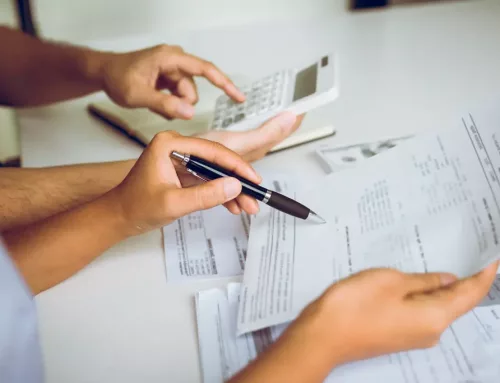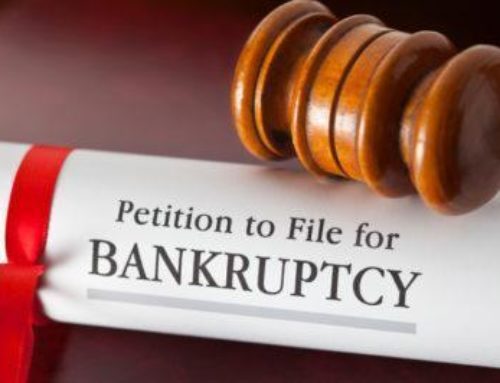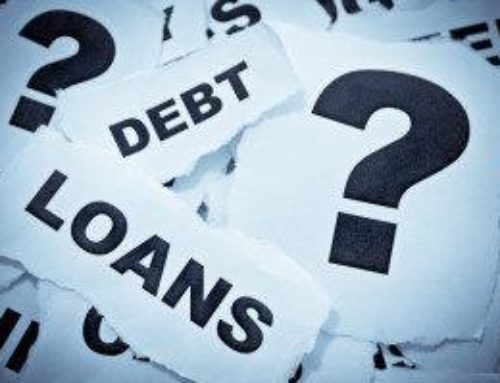There are different types of bankruptcy presented in the bankruptcy code. If you want to petition for personal bankruptcy, you would likely file for bankruptcy under Chapter 7 or Chapter 13. Chapter 7 involves liquidation, while Chapter 13 involves debt reorganization.
Debtors who file under the liquidation bankruptcy chapter usually have very few assets. To file bankruptcy under Chapter 7, you have to pass a means test, unless you qualify to be exempted from taking it. Generally, Chapter 7 filers do not hand over their assets or funds to the bankruptcy trustee in charge of the bankruptcy proceedings of their bankruptcy case. This is why most of Chapter 7 bankruptcy cases are considered “no-asset.”
No-Asset Filings
 In no-asset bankruptcy filings, those filing for bankruptcy get to hold on to their assets since these qualify as bankruptcy exemptions under federal law or state law. Creditors end up not getting paid since these cases do not actually generate proceeds. Since the Chapter 7 bankruptcy process typically results in the discharge of the majority of the debts, a creditor in such a case usually does not get to collect on the debt that the filer was unable to pay. There are, of course, certain debts that are not dischargeable. Some of those that cannot be discharged are child support, taxes, and student loans. Creditors will be notified by the bankruptcy court that they will not be able to collect on the relevant debts and therefore will not need to file a proof of claim.
In no-asset bankruptcy filings, those filing for bankruptcy get to hold on to their assets since these qualify as bankruptcy exemptions under federal law or state law. Creditors end up not getting paid since these cases do not actually generate proceeds. Since the Chapter 7 bankruptcy process typically results in the discharge of the majority of the debts, a creditor in such a case usually does not get to collect on the debt that the filer was unable to pay. There are, of course, certain debts that are not dischargeable. Some of those that cannot be discharged are child support, taxes, and student loans. Creditors will be notified by the bankruptcy court that they will not be able to collect on the relevant debts and therefore will not need to file a proof of claim.
Chapter 7 Exemptions
In filing bankruptcy under Chapter 7, the debtor technically yields his or her assets to be included in the bankruptcy estate used to pay back creditors, but this only applies to the non-exempt property. According to bankruptcy law, the debtor has to keep some property in order to survive the process and have something to build on after bankruptcy. The list of exemptions that those filing for bankruptcy can claim varies from state to state. Some apply to certain assets such as a home or a car, while others are known as “wildcard exemptions.” In bankruptcies, they can be applied to any personal property with considerable value.
The federal government has its own list of bankruptcy exemption separate from state exemptions. Bankruptcy laws in each state dictate the filer’s options with regard to exemptions. Some states limit debtors to state exemptions, while others allow filers to choose between state and federal bankruptcy exemptions. The state’s law largely influences the amount of property that can be covered by bankruptcy protection.
Discovery of Other Assets
What happens if, in the course of investigating the filer’s situation, the trustee finds non-exempt assets that may have been deliberately concealed or unintentionally forgotten about? In this case, the trustee has to notify the creditors involved in the discovery. They can then submit proofs of claim in order to collect from it.
Because of this discovery, the debtor may be penalized if it is found that the omission was intentional, and his right to proceed with the bankruptcy may be compromised. This is why it’s important to ensure that all your assets are disclosed in your bankruptcy petition.
If you do have non-exempt assets you want to keep, Chapter 13 may turn out to be the more fitting solution to your financial problems. Passing or being exempted from the means test doesn’t necessarily indicate that you are not eligible to file for bankruptcy under Chapter 13.
Need Help Declaring Bankruptcy? Contact an Oregon Bankruptcy Attorney Today!
If you’re in financial distress and seeking a way out of debt, a bankruptcy filing may be in order. To declare bankruptcy with prudence and work toward the best possible outcome, legal advice is invaluable. Bankruptcy lawyers lend legal assistance from the time before filing with guidance on which documents to gather and how to file correctly to every other stage after filing. The services of a bankruptcy lawyer can definitely make the bankruptcy experience less painful for you. For legal help in a bankruptcy situation, call us at Northwest Debt Relief Law Firm and arrange a free legal consultation with one of our bankruptcy attorneys.











